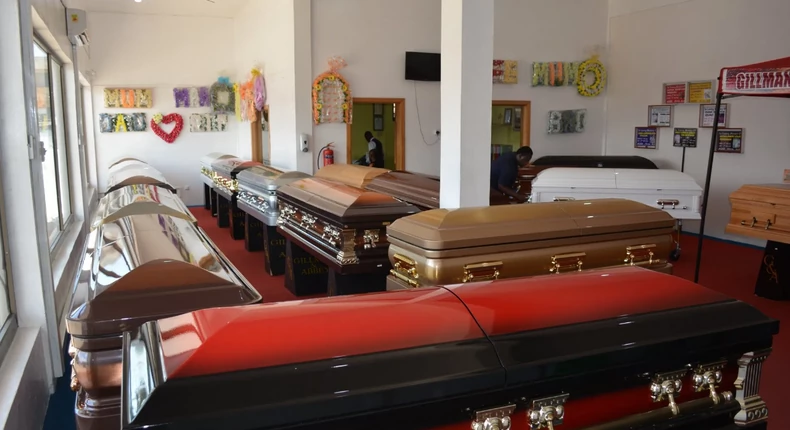According to the producers, their prices will go up because of the high cost of the materials (fillers, nails, pine, saw and fabrics to line coffins) they use in making the caskets.
When Joy News visited Asafo in Kumasi where some of the coffin manufacturers are located, they lamented the high cost of raw materials.
They added that the extra expenditure on production is also pushing them to increase the prices of caskets in order to stay in business.
The current rising inflation, coupled with fuel and utility tariff increases, majority of local businesses are on the brink of collapse.
In an interview with Joy News, Agya Appiah, a coffin producer who has about 30 years of experience said he is compelled to increase the prices of his products.
“I was an apprentice in 1992, but now I run my own business. The fabric we use to decorate the casket I bought for ¢200 on Friday, I was told today to pay ¢240. I couldn’t buy it, so I had to come home to solicit the remaining amount.
“Things are expensive, I would also not sell them [caskets] at a reduced price. All manufacturers here have come to a consensus to increase and stick to one price, latest by next week,” he stated.
“This casket is called ‘Abenwaha’, with a price range of ¢1,500 to ¢2,000. But now, If I don’t sell it at ¢2,800, I may not be able to accrue my profit,” he added.
Kwame Malvin, who has been in the business for 3 years, also says patrons are complaining about the new prices.
“Our work has been affected. I used to buy this filler at ¢80, currently, I buy it at ¢230. I used to finish two coffins a day. Buyers keep complaining because we scare them with the pricing.
“Starting next week, the prices of coffins will increase. The ¢1,000-priced coffins will be sold at ¢1,500. The ¢800-priced coffins would be sold at ¢1000,” he told Joy News.
On the current state of Ghana’s economy, Dalex Finance CEO Ken Thompson has said he foresees a lot of hardship coming if President Nana Akufo-Addo fails to take decisive action to fix the ailing economy.
While kneeling down on live TV during a programme on Accra-based Citi TV on Tuesday, 1 November 2022, Mr Thompson pleaded: “His Excellency, Nana Addo Dankwa, what I can see coming is not good. If you are watching, what I can see coming is not good”.
“I can see poverty, I can see job losses, I can see business closures, I can see price of electricity going up”, he noted.
Ghana’s economy is on the decline with high fuel and food prices.
The cedi has also taken tumble, ending up as the worst-performing currency in the world.
Ghana is currently in talks with the IMF for a $3-billion extended credit facility programme.
Source: pulse.com.gh

